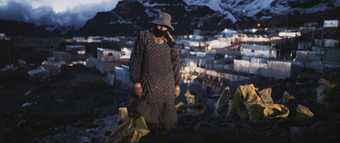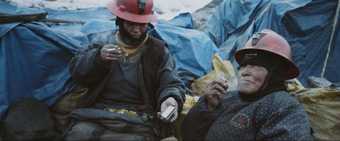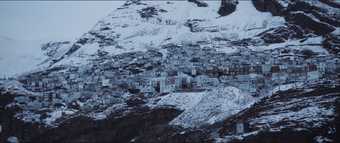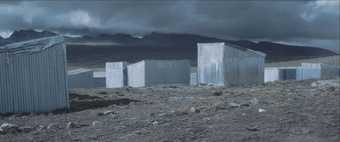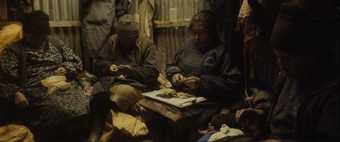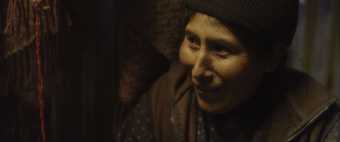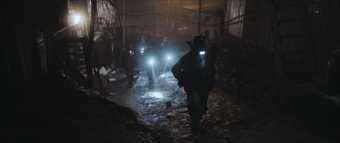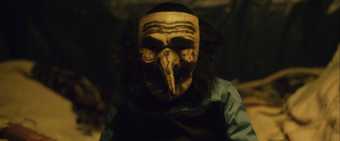Set in La Rinconada y Cerro Lunar in the Peruvian Andes – at 5500 metres, the highest human settlement on earth – Portuguese filmmaker Salomé Lamas’s second feature is an austere yet striking ethnography of the migrant workers inhabiting this mountainous region.
The film opens with a staggering fifty-minute shot capturing the gruelling labour of miners extracting minerals from the mountainside by torchlight. Radio broadcasts and voiceover testimonies describe the circumstances that have led them to work under extreme and exploitative conditions. Under the cachorreo system, miners work for thirty days without remuneration and on the thirty-first day, they are allowed to freely explore the mine for precious metals in the rock, the value of which must then be negotiated in a non-regulated establishment. Chewing large quantities of coca leaves to deceive hunger and prevent exhaustion, workers toil in this unpredictable lottery system in the hopes of finding gold.
The second half of the film turns toward the daily lives of other inhabitants of the region, crafting a breathtaking and enigmatic panorama of the landscape and community, its social gatherings, dwellings, brothels, processions and masked rituals. Produced in part through project prizes and funds awarded at FIDMarseille’s 2013 FIDLab and Berlinale’s 2014 Doc Station, Eldorado XXI is a haunting portrait of the stark reality belied by promises of hidden gold.
Programme
Salomé Lamas, Eldorado XXI, Portugal / France 2016, digital, colour, sound, 125 min, Spanish, Quechua and Aymara with English subtitles
The screening is followed by a discussion with the filmmaker and an audience Q&A.
Watch the clip
This film file is broken and is being removed. Sorry for any inconvenience this causes.
About Salomé Lamas
Salomé Lamas (b.1987, Portugal) is a filmmaker whose work dissolves the apparent border between documentary and fiction. With an interest in the intrinsic relationship between storytelling, memory and history, Lamas uses the moving image to explore the traumatically repressed, seemingly unrepresentable or historically invisible – from the horrors of colonial violence to the landscapes of global capital. Her debut feature No Man’s Land [Terra de Ninguem] (2012) premiered internationally at Berlinale and went on to screen at many major international film festivals. Her short films have been presented in art and film institutions including Museum of Modern Art, New York; Guggenheim Bilbao; Hammer Museum, Los Angeles; Museo Nacional Centro de Arte Reina Sofia, Madrid; Viennale, Vienna; Bozar Centre for Fine Arts, Brussels; and Biennial of Moving Images, Geneva. Lamas is currently a PhD candidate in film studies at the University of Coimbra, Portugal.

